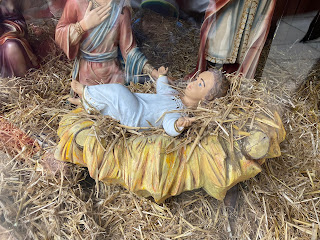Stealing the Inheritance
Scripture:
Luke 20:9 He began to tell the people this parable: “A man planted a vineyard, and leased it to tenants, and went to another country for a long time. 10 When the season came, he sent a slave to the tenants in order that they might give him his share of the produce of the vineyard; but the tenants beat him and sent him away empty-handed. 11 Next he sent another slave; that one also they beat and insulted and sent away empty-handed. 12 And he sent still a third; this one also they wounded and threw out. 13 Then the owner of the vineyard said, ‘What shall I do? I will send my beloved son; perhaps they will respect him.’ 14 But when the tenants saw him, they discussed it among themselves and said, ‘This is the heir; let us kill him so that the inheritance may be ours.’ 15 So they threw him out of the vineyard and killed him. What then will the owner of the vineyard do to them? 16 He will come and destroy those tenants and give the vineyard to others.” When they heard this, they said, “Heaven forbid!” 17 But he looked at them and said, “What then does this text mean:
‘The stone that the builders rejected
has become the cornerstone’a?
18 Everyone who falls on that stone will be broken to pieces; and it will crush anyone on whom it falls.” 19 When the scribes and chief priests realized that he had told this parable against them, they wanted to lay hands on him at that very hour, but they feared the people.
Observation:
Jesus already knew that the religious leaders were frustrated with him. That was obvious by their previous encounter where they had questioned his authority. Jesus had been busy teaching the crowds, and also his disciples. He returned to his teaching and shared a parable, one which would have been very annoying to the religious leaders.
The people knew their Scripture, and certainly would have recognized this analogy of Israel as the vineyard from the prophet Isaiah. The rejection of the servants was the refusal of God’s people to listen to the prophets. While they had faithfully preached and proclaimed what they had received from God, they were rejected by the people.
The parable took a turn when Jesus referred to the final visitor as the “beloved son” of the man. Anytime that Jesus hinted at being God’s son, the religious leaders became furious, for this was certainly blasphemy in their eyes. Jesus knew that in just a short period of time, they would kill him. He had had become an obstacle to their positions of power. If they could get rid of him, then their problems would be solved. Little did they understand the consequences of their actions.
Those who thought they had privileged access to God would soon lose what they had been given. Instead, a broad offer of salvation would be offered to all who were lost. As a result, Israel would have to find salvation “on the same terms as all other peoples: repentance and forgiveness” (Neale, NBBC, 200).
The workers were foolish, thinking that they could steal the inheritance.
Application:
Today there are many who resemble these Jews, who had murdered the prophets and ultimately crucified their Messiah. By setting themselves up as enemies to God, ignoring any kind of service to the Lord, and living into and affirming their lusts without any type of self-denial, people are trying to steal the inheritance. The result is a people who believe that they can have the inheritance from God that has been established for His Son — and those who have been adopted into the family of God.
The foolishness of those who thought they could steal the inheritance became obvious in that first century. When the church was born on the day of Pentecost, something miraculous happened and the gospel was spread throughout the known world. The inheritance moved beyond the children of Israel to all of humanity. This could happen by way of repentance and forgiveness.
Jesus was trying to warn the disciples about the possibility that the inheritance could be stolen. Today there are those in the world who would like to suggest that they can steal the inheritance. Alternate gospels are being offered by a world that rejects the prophets and the Son. They think that they can have the inheritance if they simply get rid of the Son and all of those who follow him.
The promise of this passage remains true more than two millennia later. The stone that is rejected is still the cornerstone. As we contemplate this new year, let’s hold fast to the cornerstone on whom we are to build our lives. Anything else that the world has to offer will simply result in a stumbling block and eventual destruction. The inheritance can’t be stolen for an iron-clad will has already been written. Don’t be fooled. The inheritance only comes through participation in the life of Christ — our Cornerstone!
Prayer:
Lord, in this new year, may I cling to you, the Cornerstone, and build all that I do, upon you. Amen.

Comments
Post a Comment